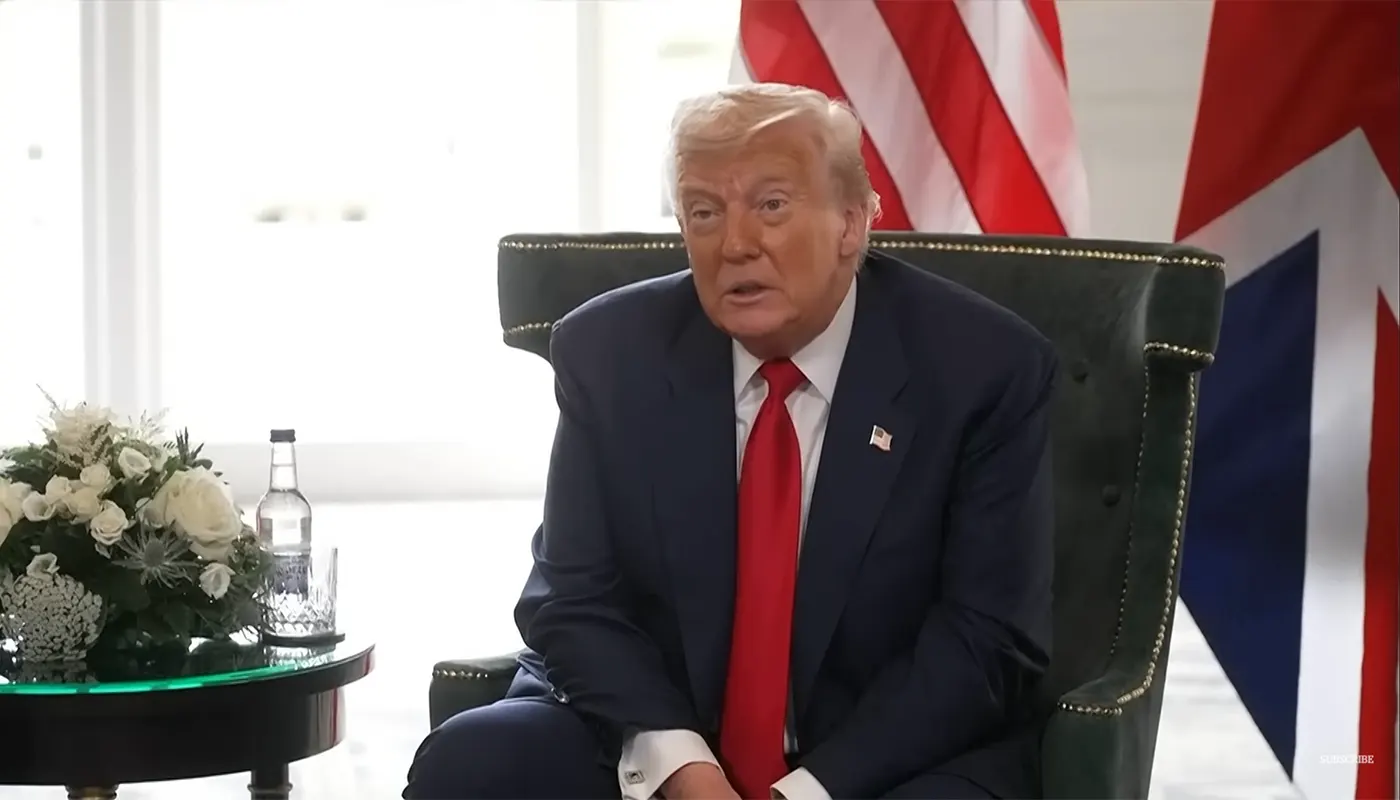SCOTLAND – Former U.S. President and current Republican candidate Donald Trump has publicly acknowledged the existence of “real starvation” in Gaza, marking a significant departure from Israeli Prime Minister Benjamin Netanyahu’s previous denial of a humanitarian crisis.
Trump insisted that Israel must allow “every ounce of food” into the besieged territory during remarks made at Scotland’s Turnberry golf resort alongside U.K. Prime Minister Keir Starmer.
Trump said he had seen harrowing images of starving children on television and vowed that these scenes “look very hungry” and “cannot be faked.” Emphasizing urgency, he called for more proactive involvement, stating: “We’re giving money, and we’re giving food … I want… every ounce of food [to get in]”.
Ignoring Netanyahu’s claims that there is “no starvation in Gaza,” Trump placed responsibility squarely on Israel, urging it to scale up aid delivery. He also announced plans to set up unfenced food distribution centres within Gaza to support relief efforts with support from allied nations.
During the same visit, Trump highlighted that feeding Gaza should be the top priority. He noted the U.S. has already contributed $60 million in humanitarian aid and called on other countries to follow suit, while also indicating potential changes to Israeli strategy and openness to a ceasefire—though without committing publicly to one.
The comments contrast sharply with Israel’s previous position. Netanyahu had dismissed famine reports as manipulated or staged, and cited logistical concerns and Hamas interference in aid distribution.
While he has since softened his tone, acknowledging conditions are “difficult,” Trump’s remarks mark a rare rebuke and diverging view on U.S.–Israel coordination regarding Gaza policy.
The humanitarian situation in Gaza is dire: recent IPC and UN-backed assessments confirm famine thresholds have been crossed, with at least 147 hunger-related deaths reported—including 88 children.
Aid delivery remains severely constrained despite daily temporary pauses declared by Israel and limited truck convoys, described by aid agencies as a “drop in the ocean” compared to needs.





